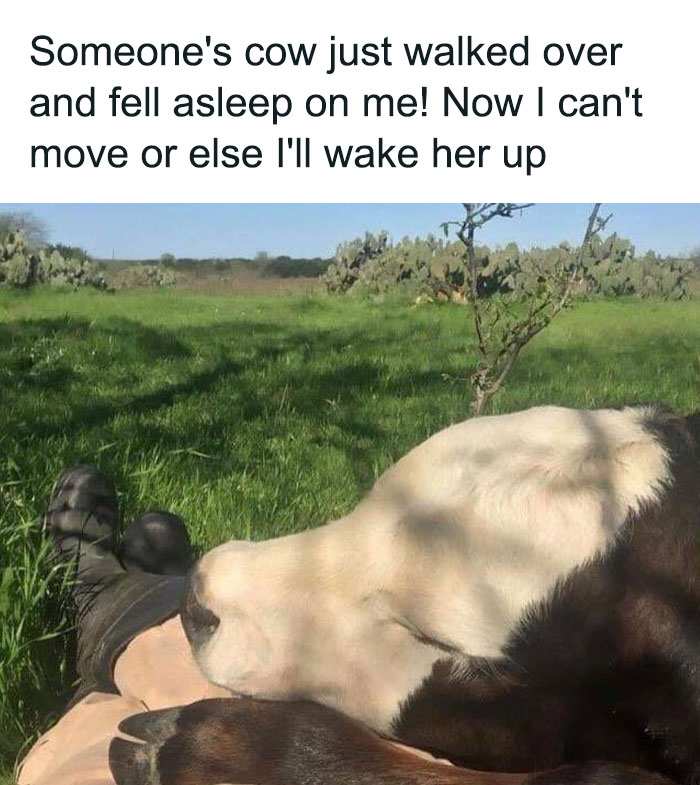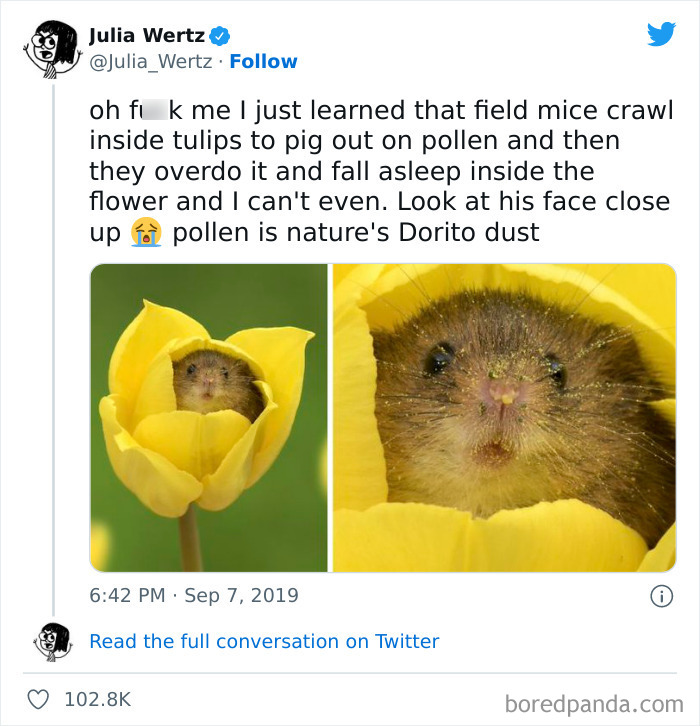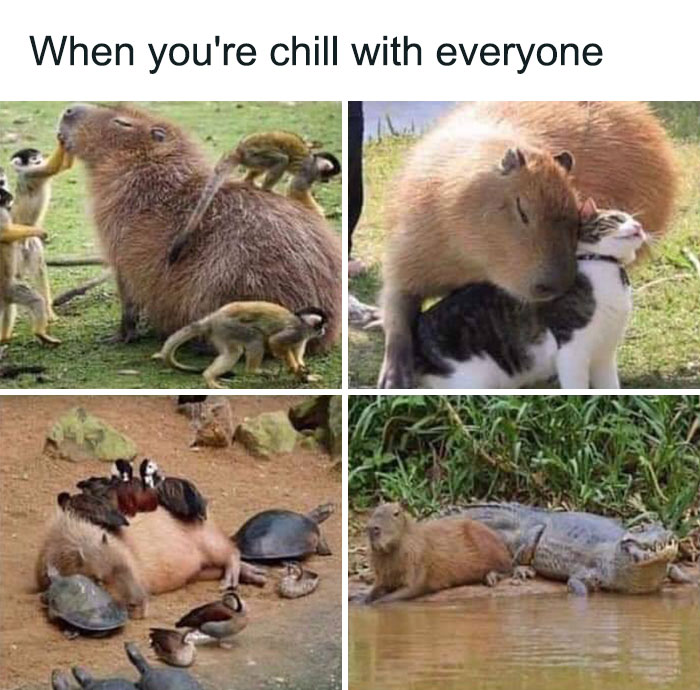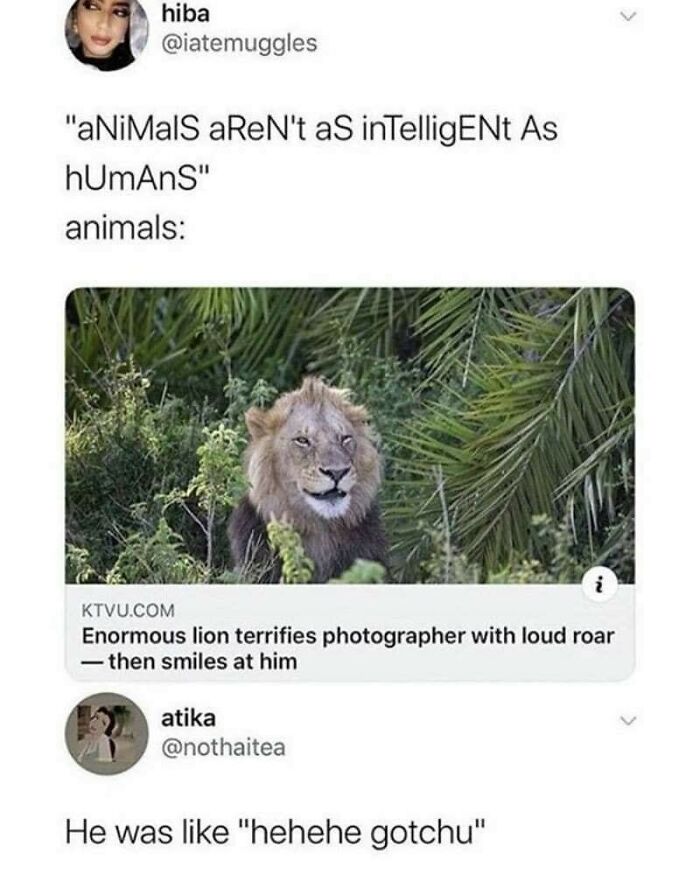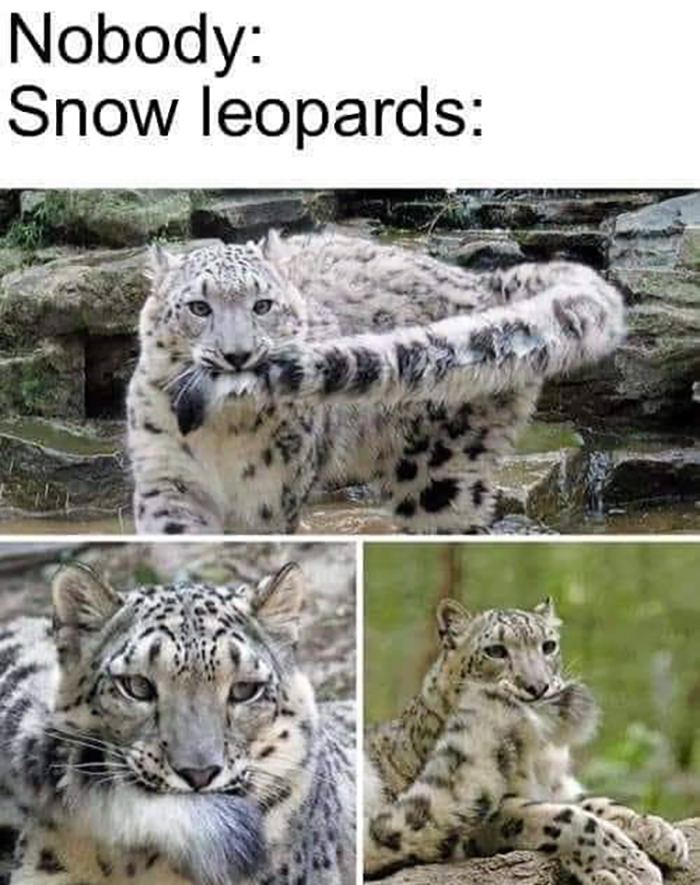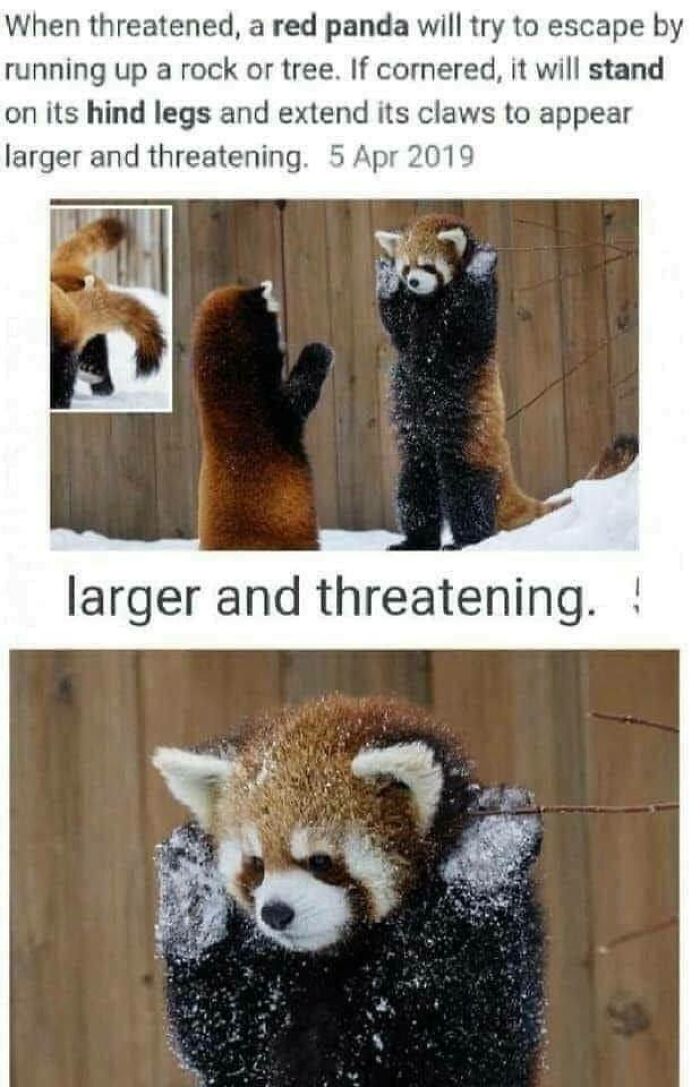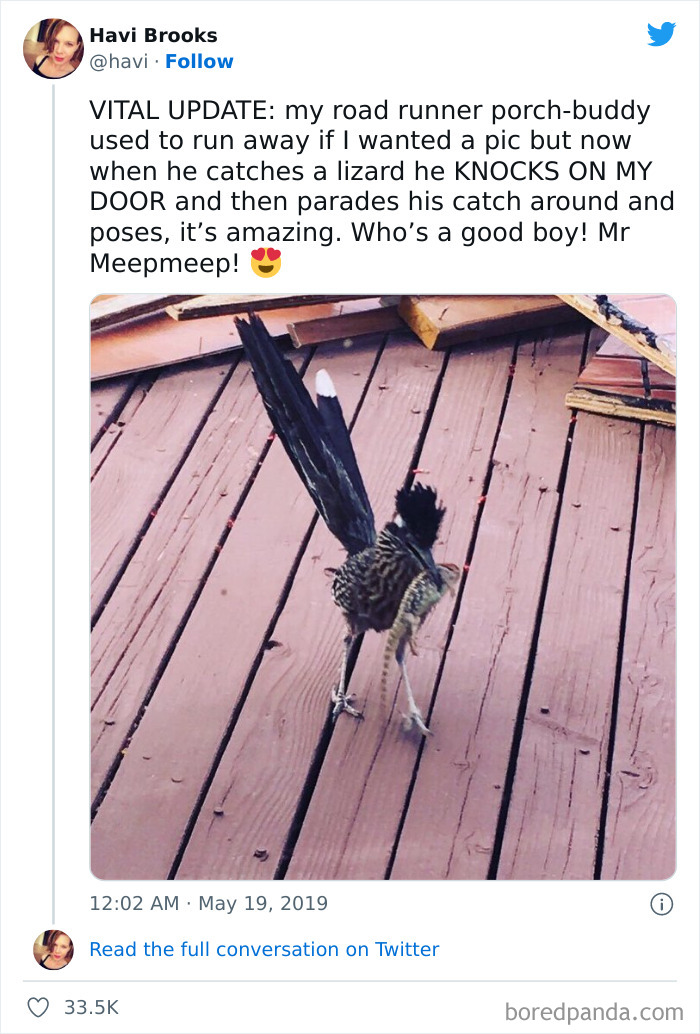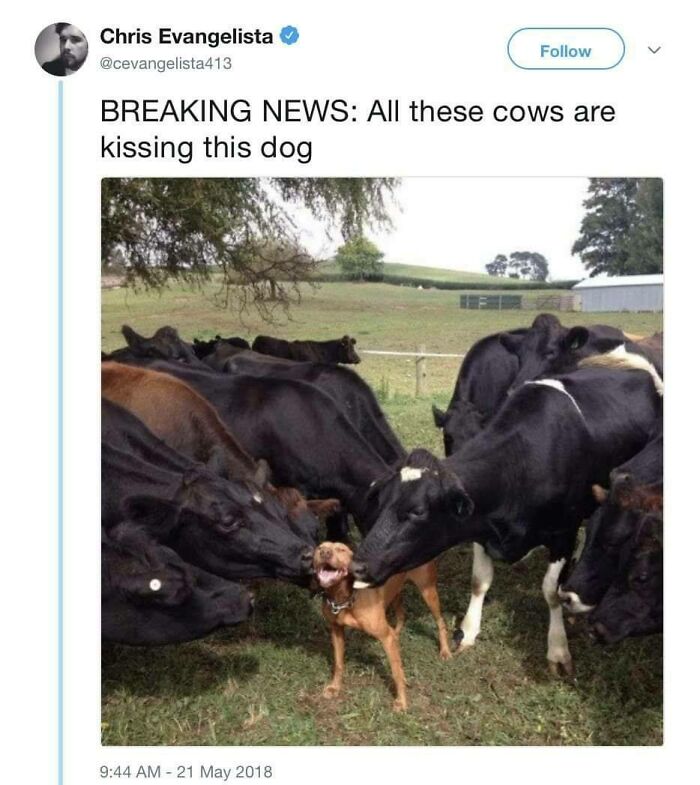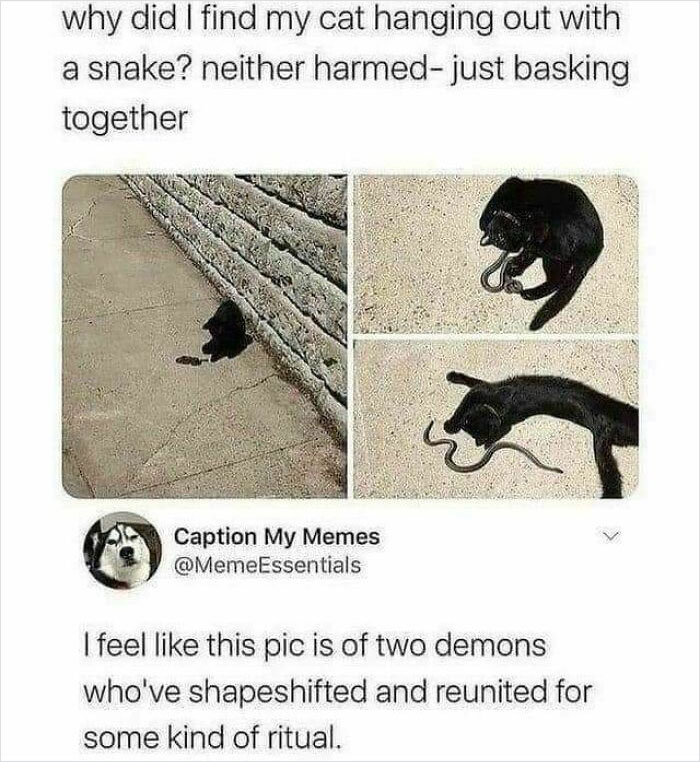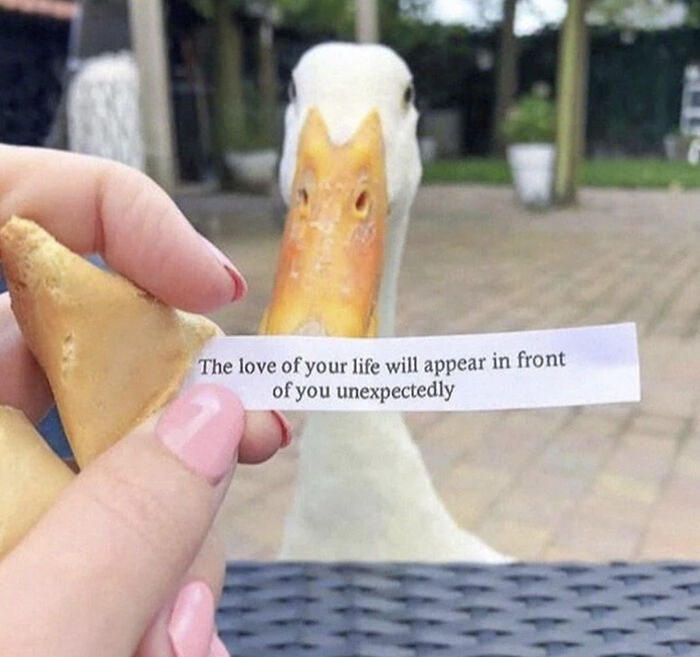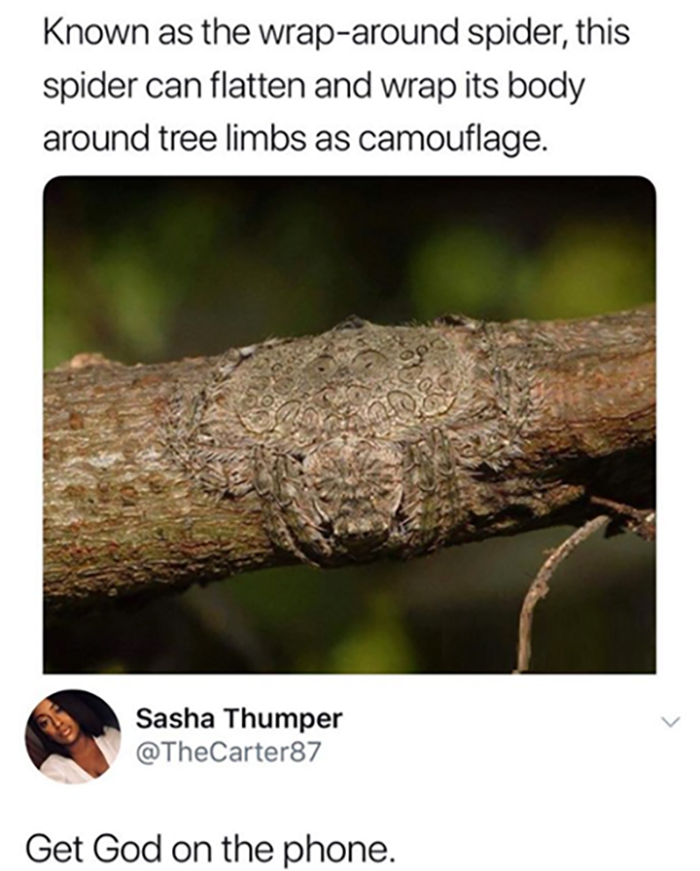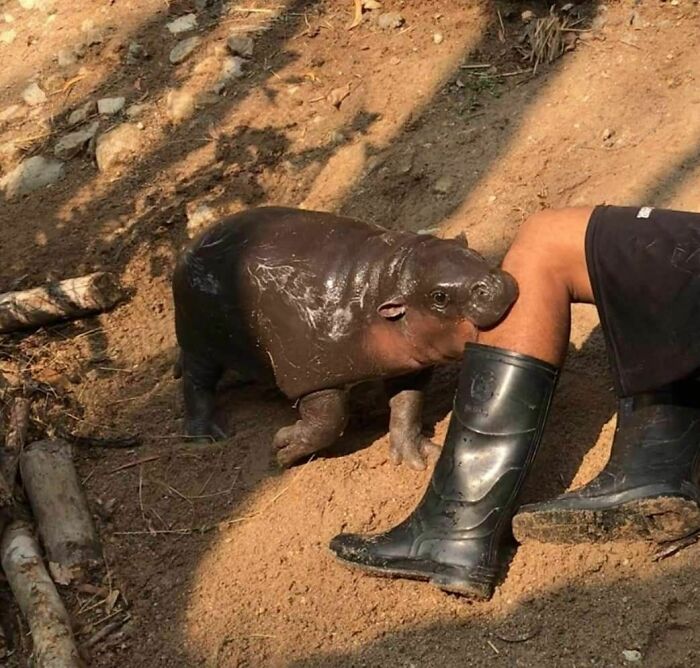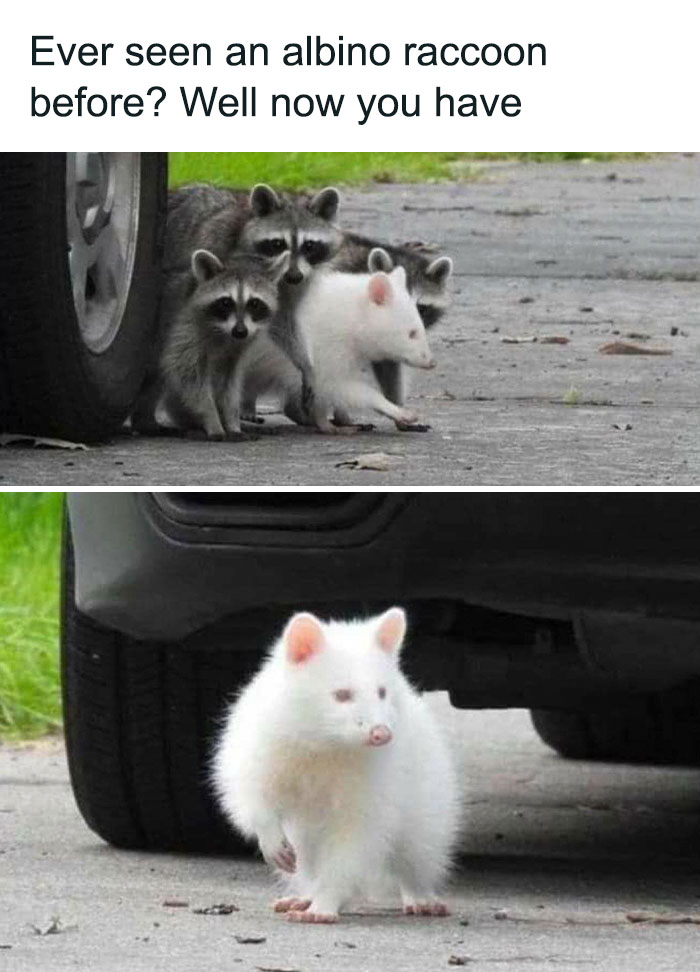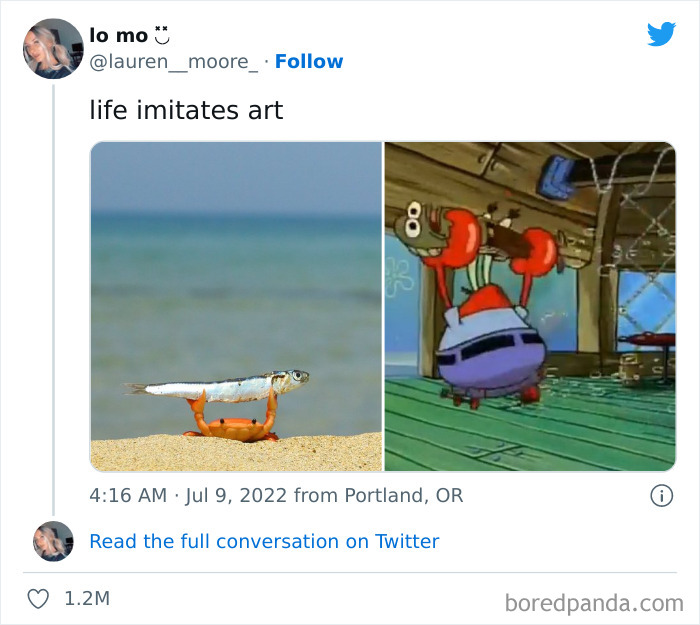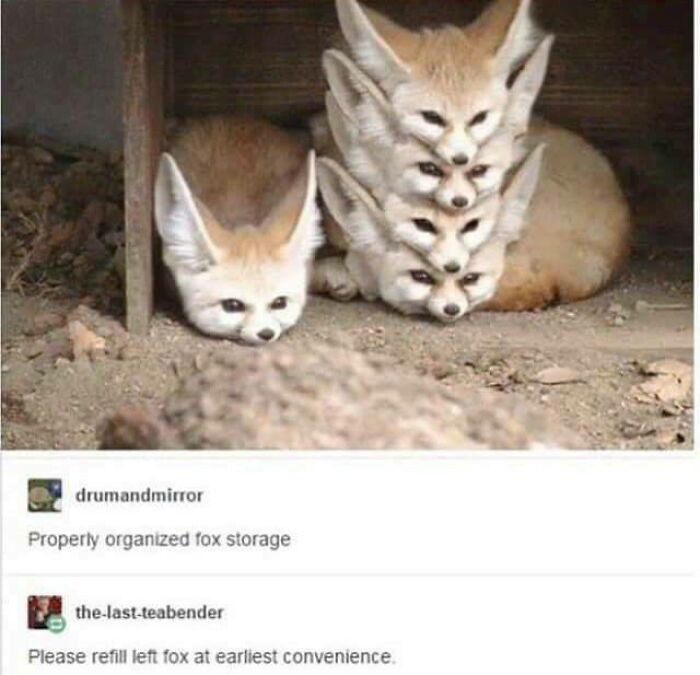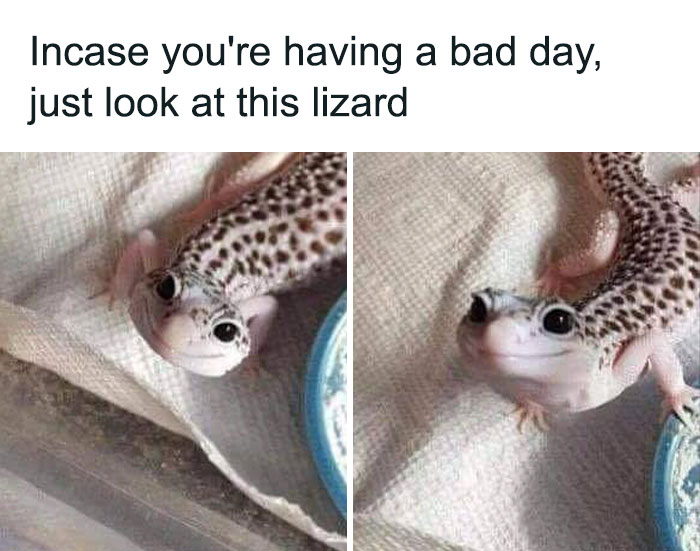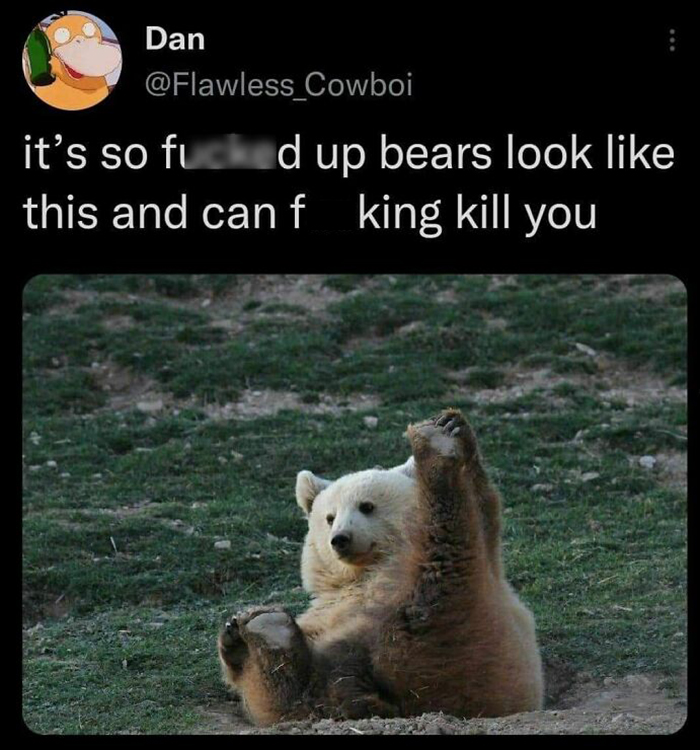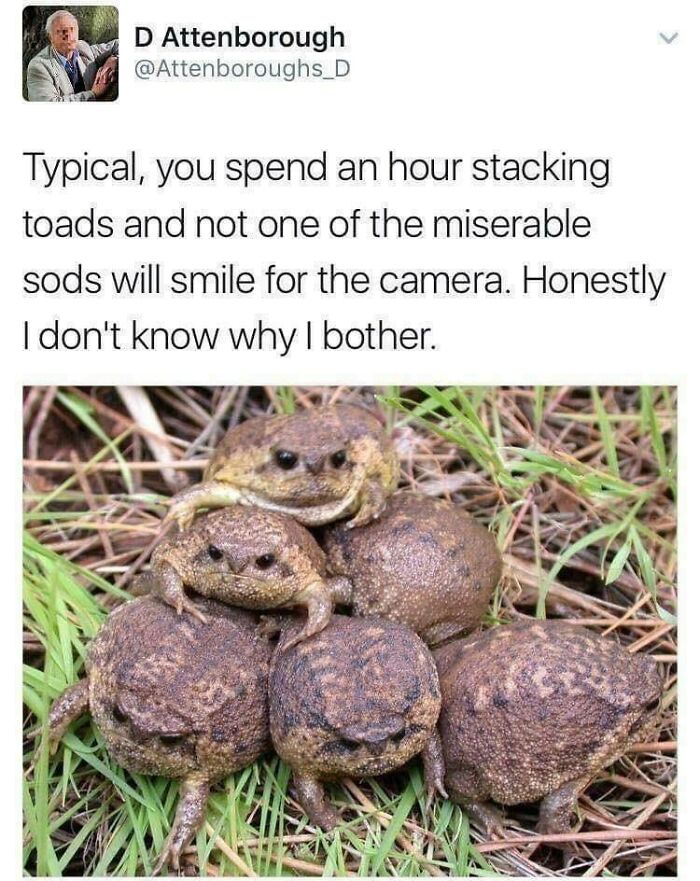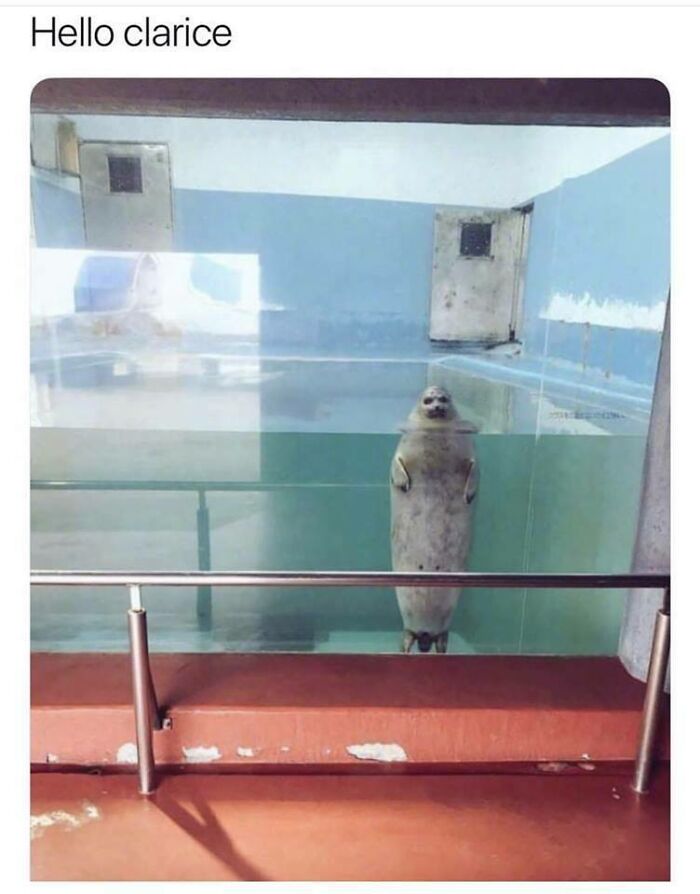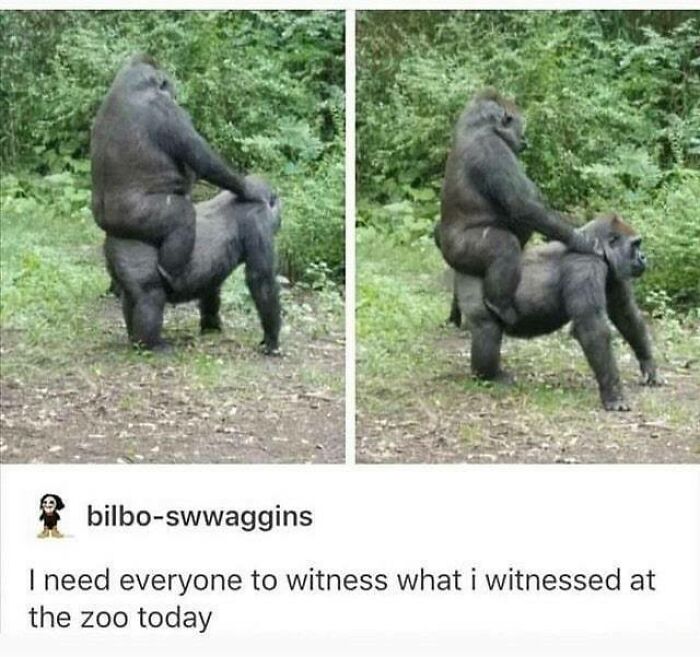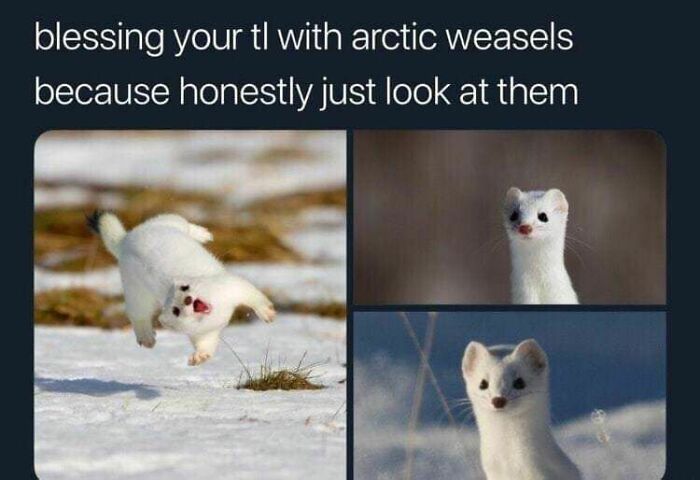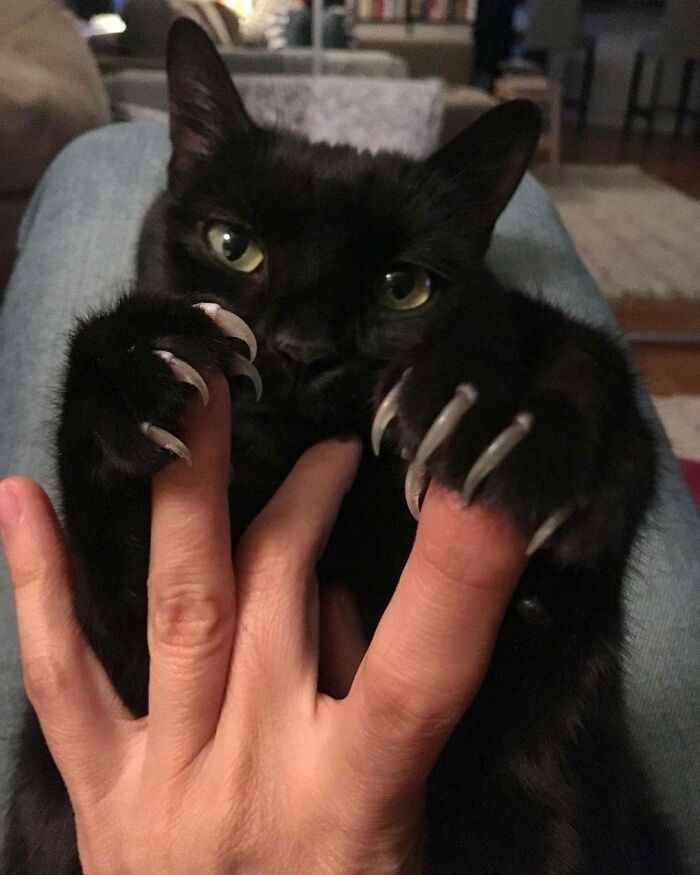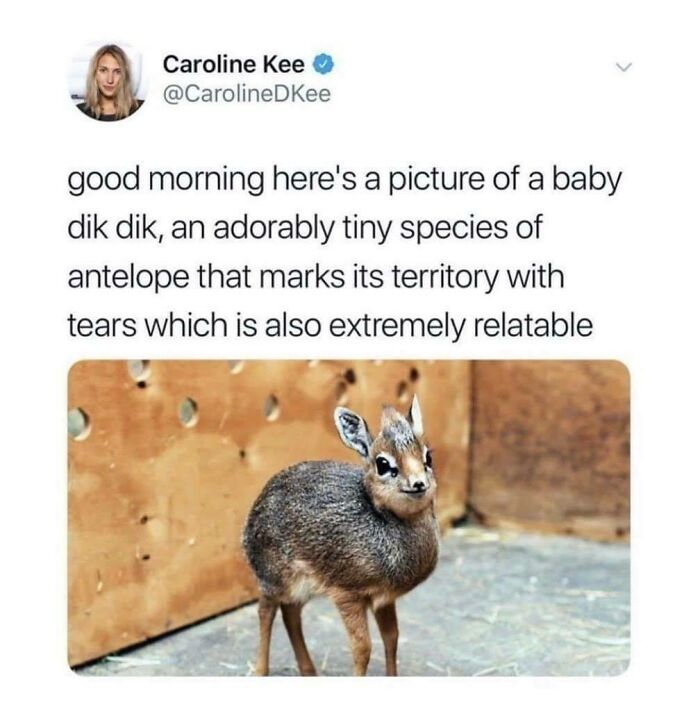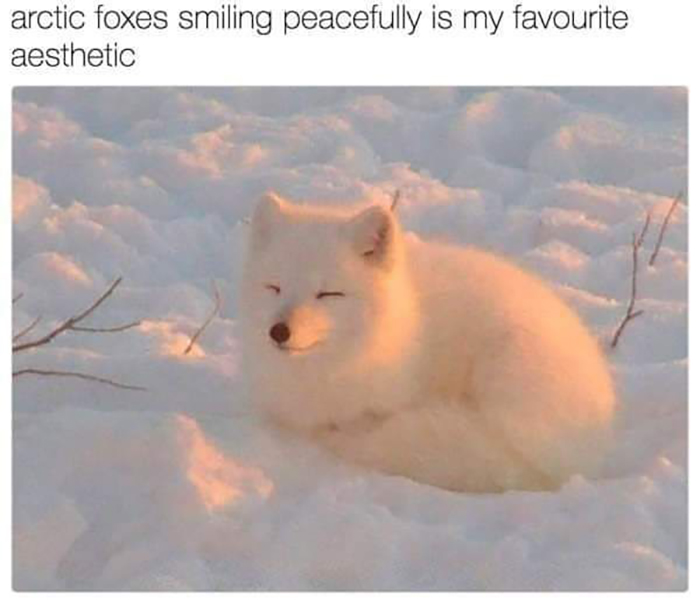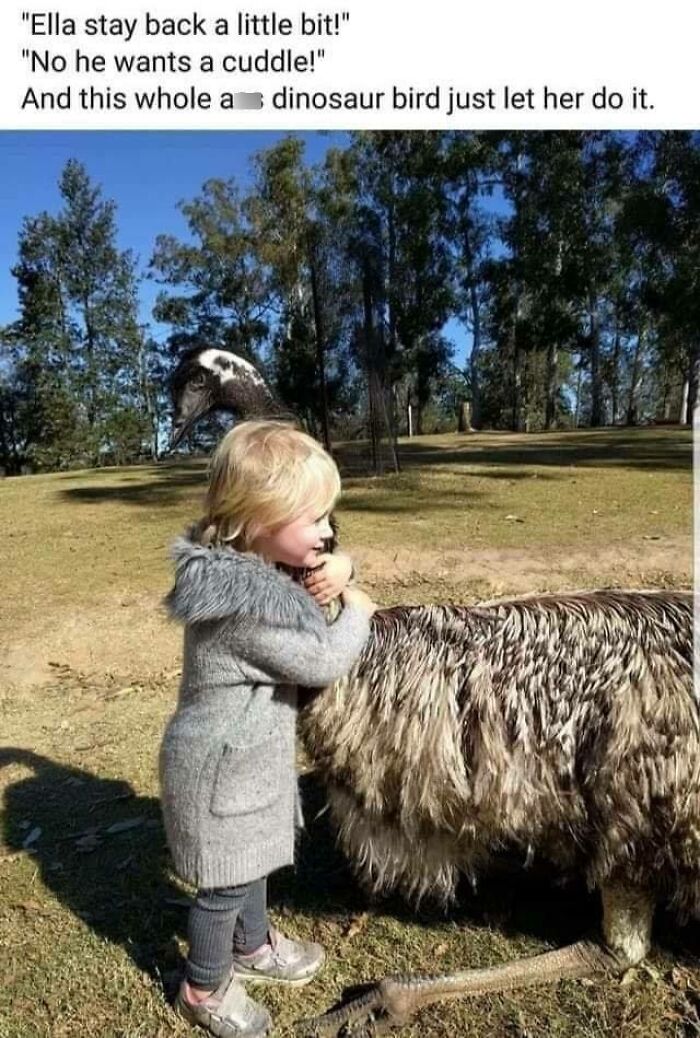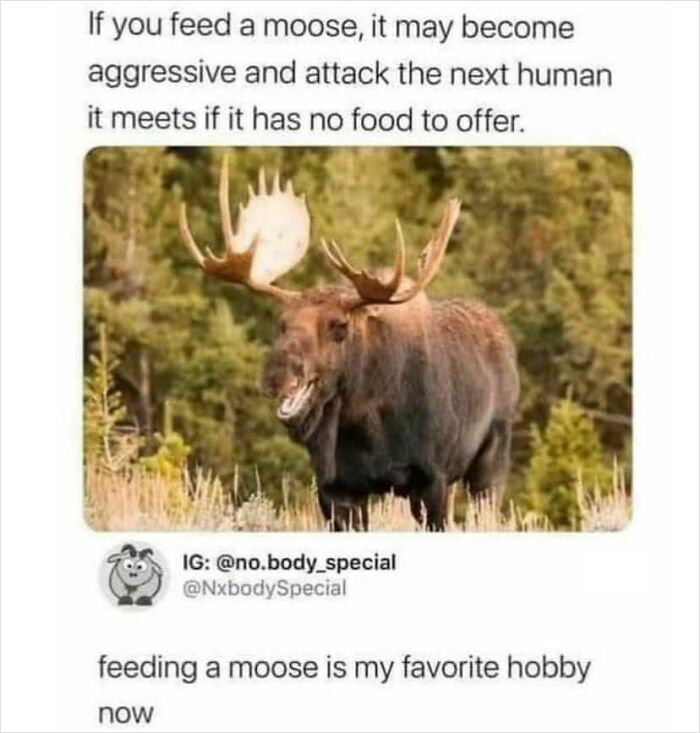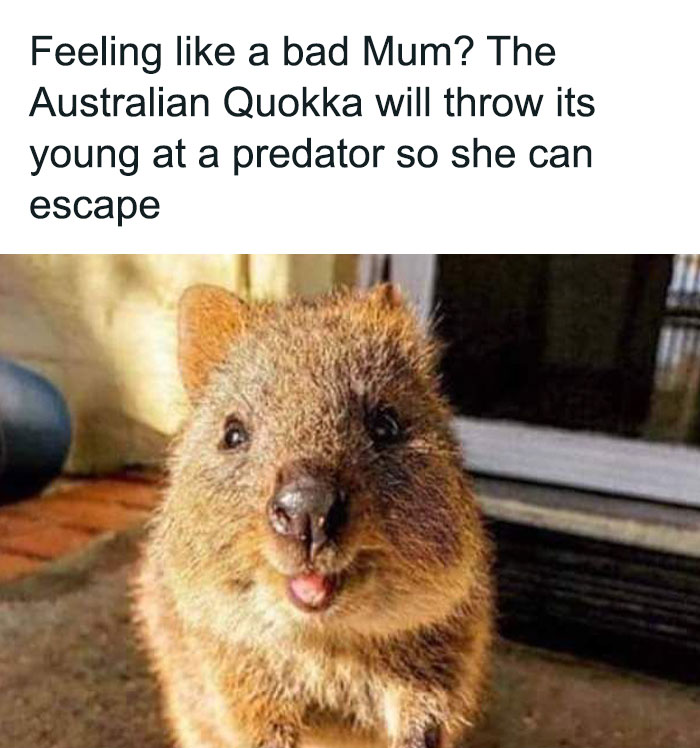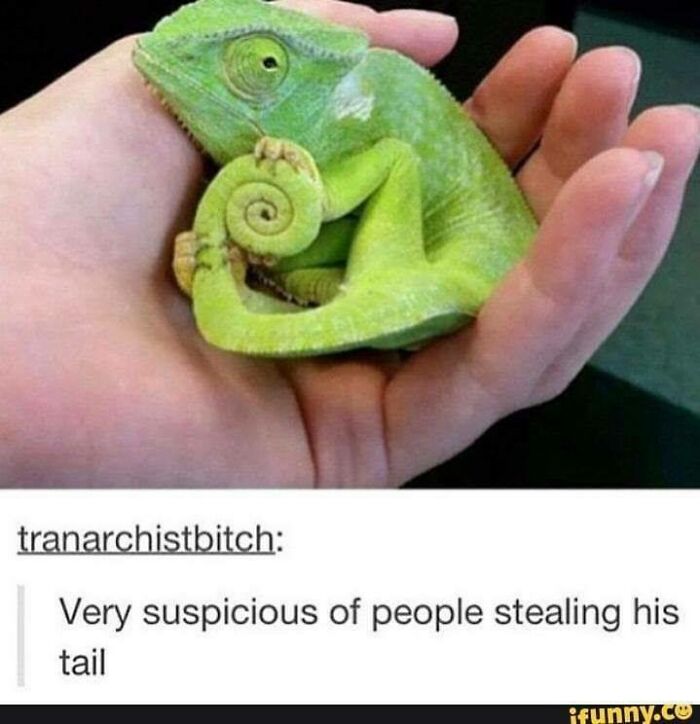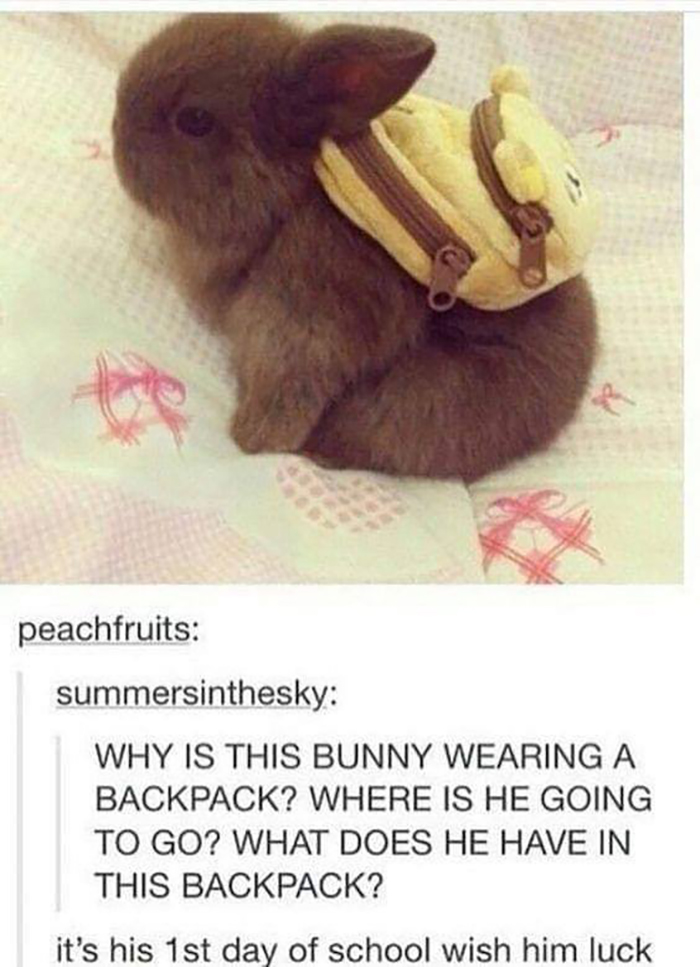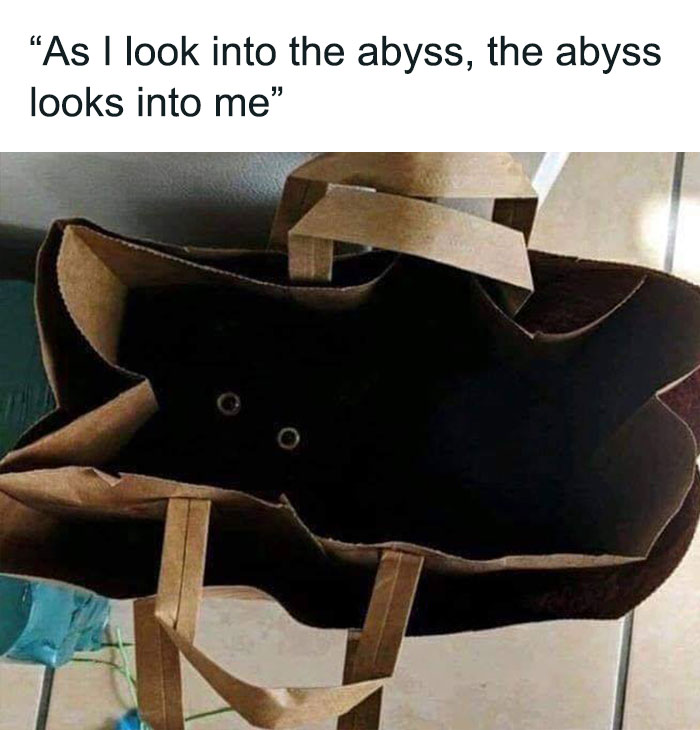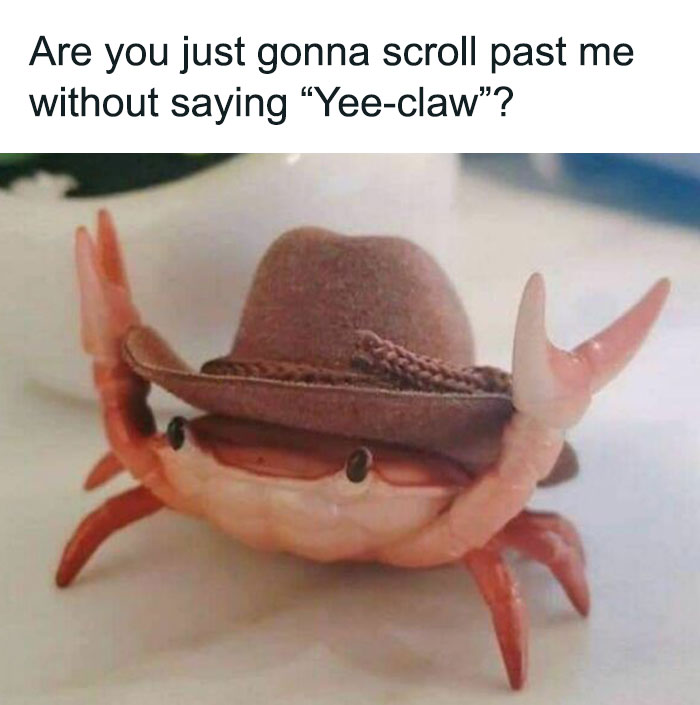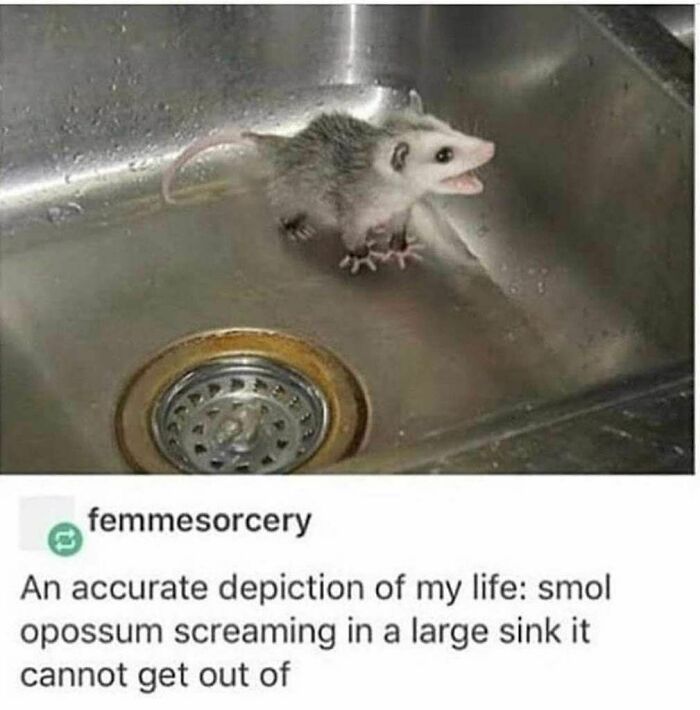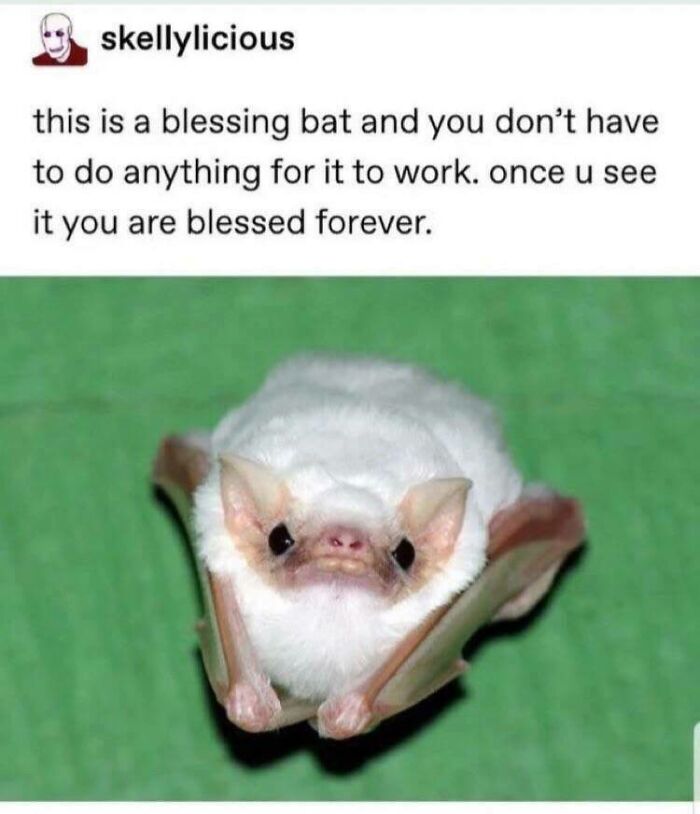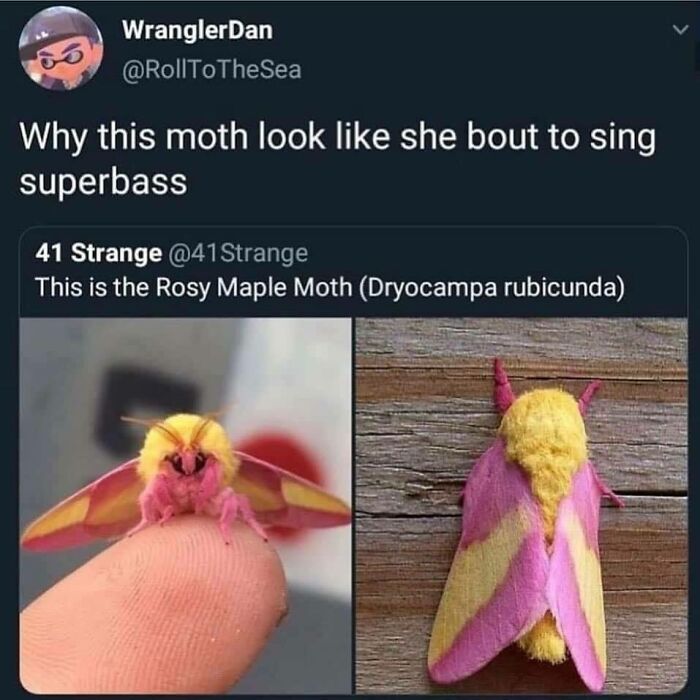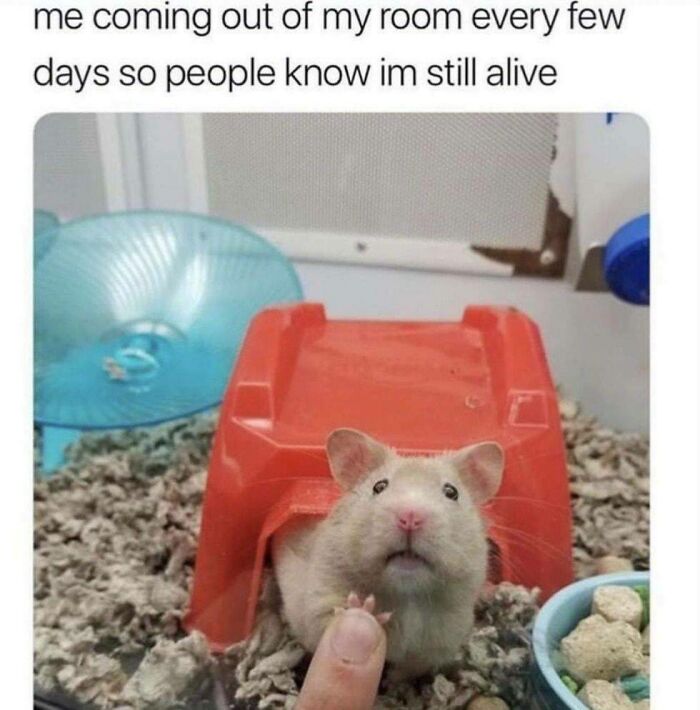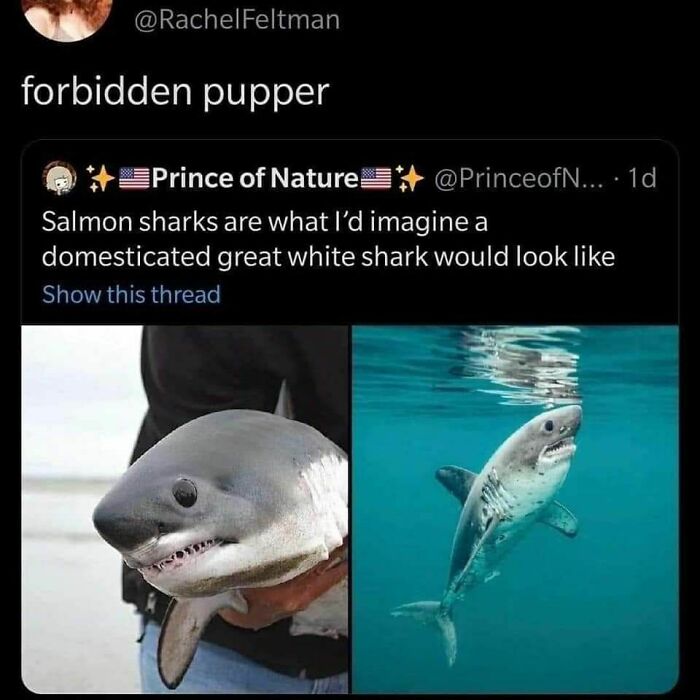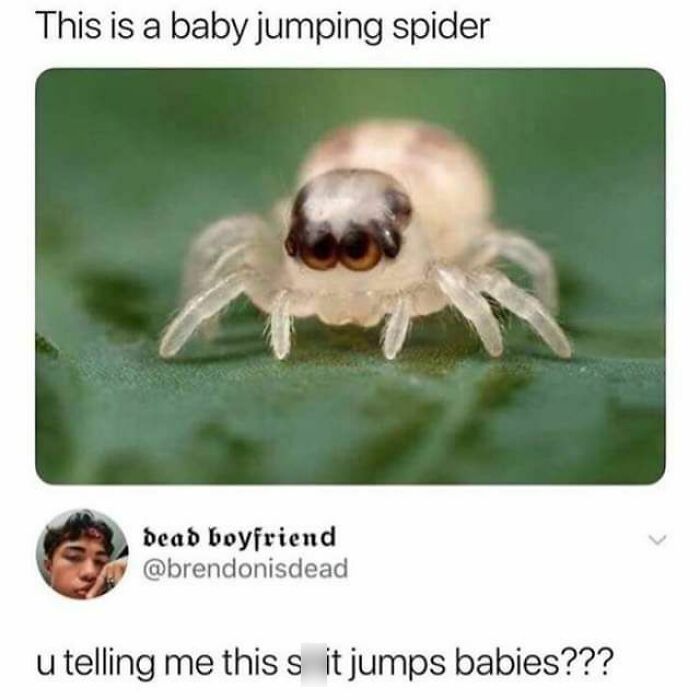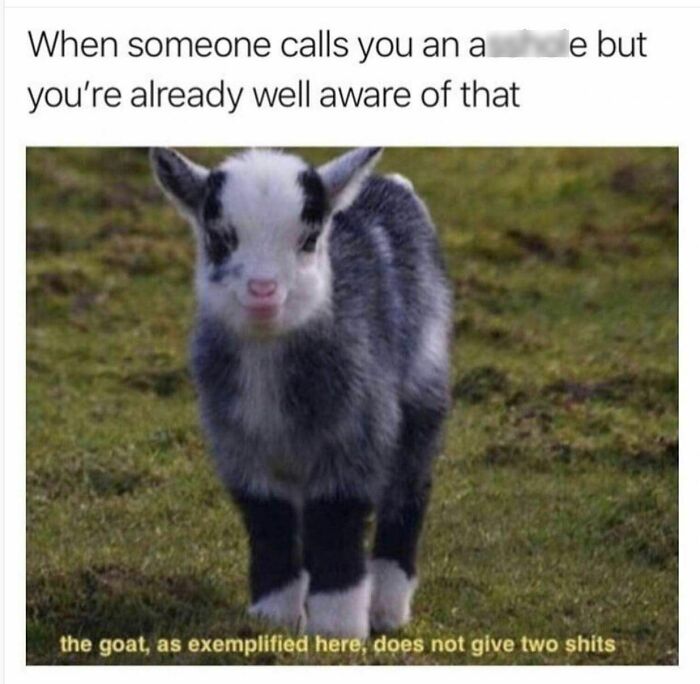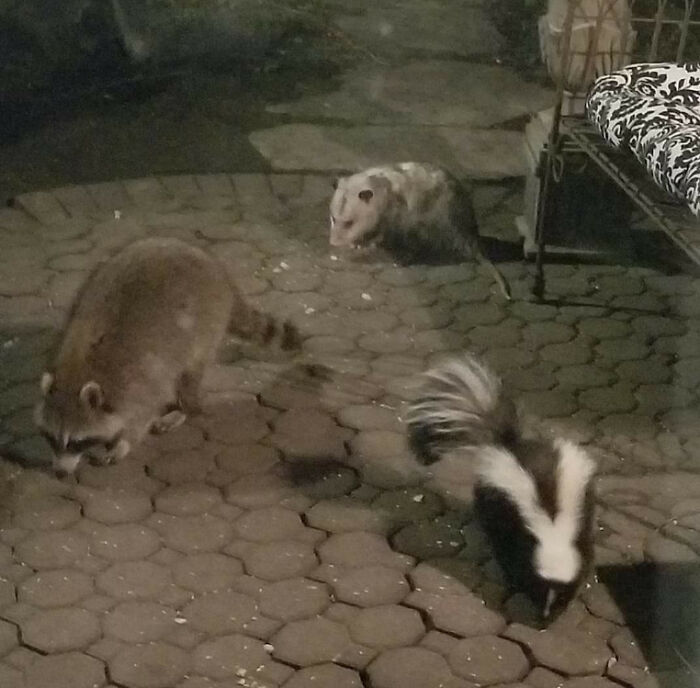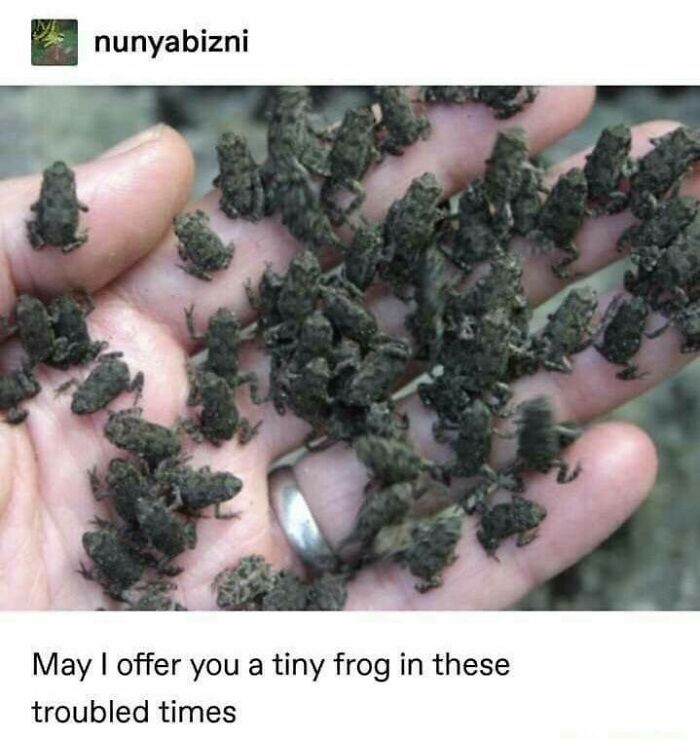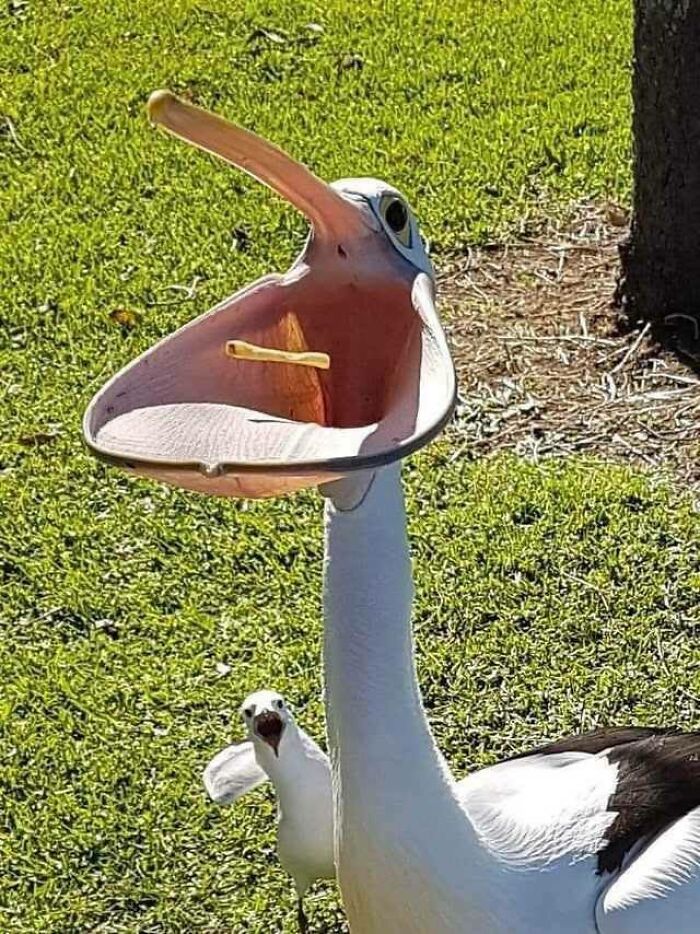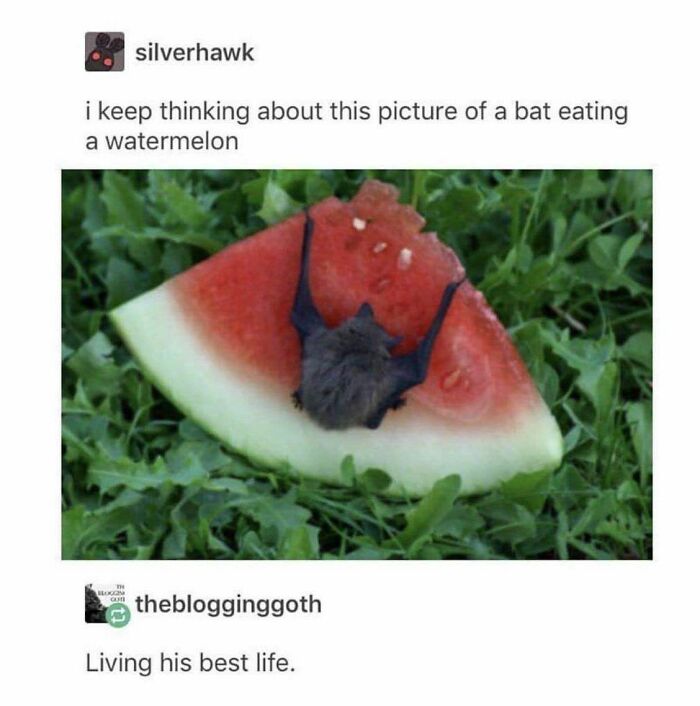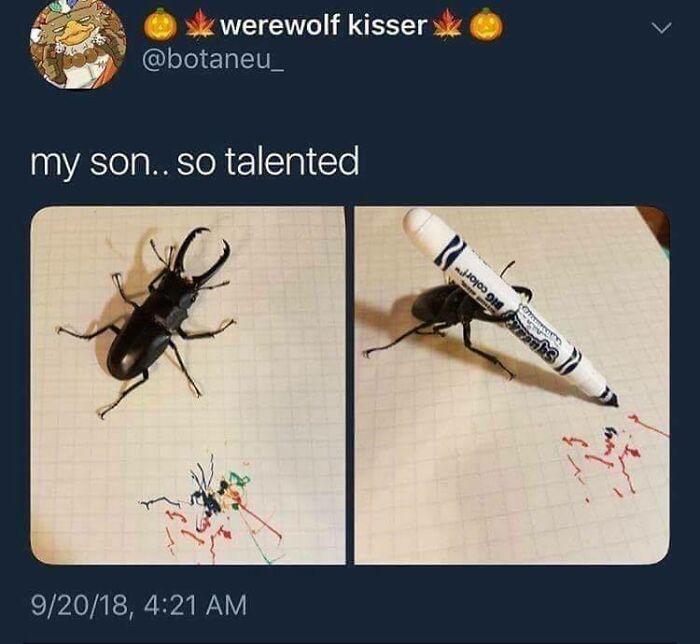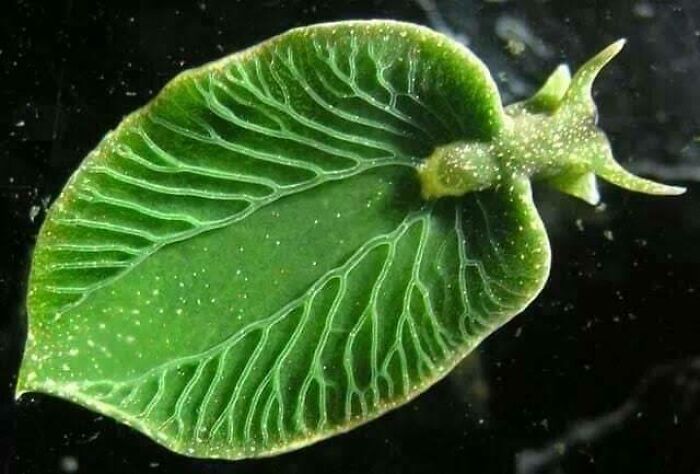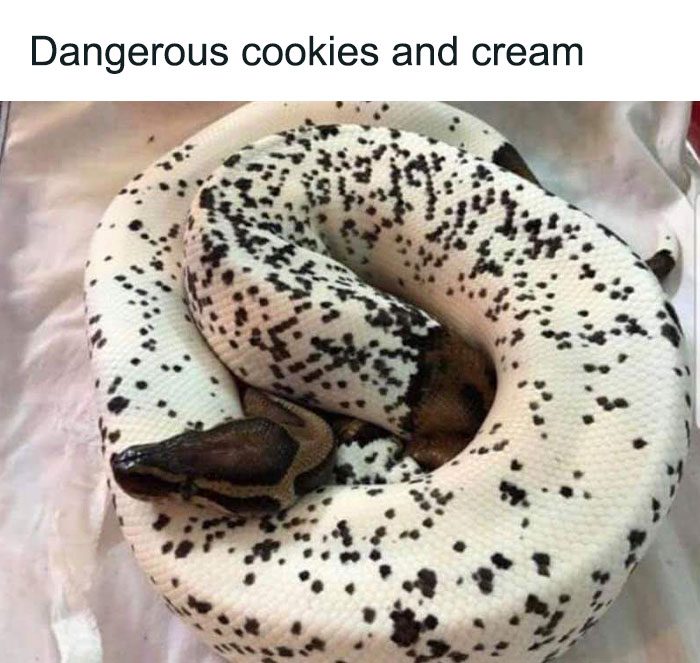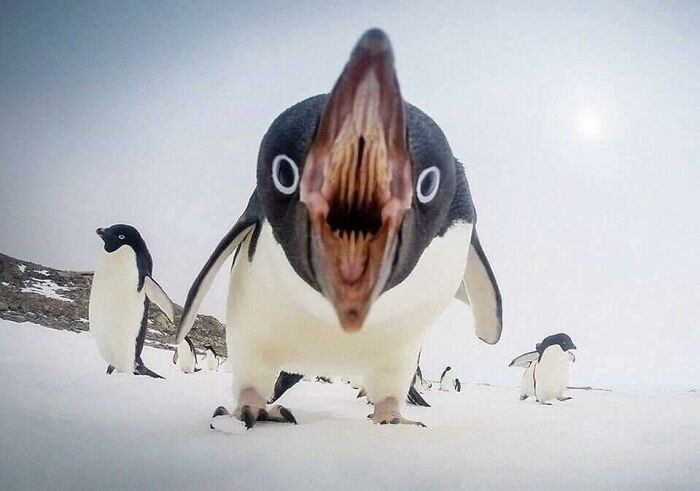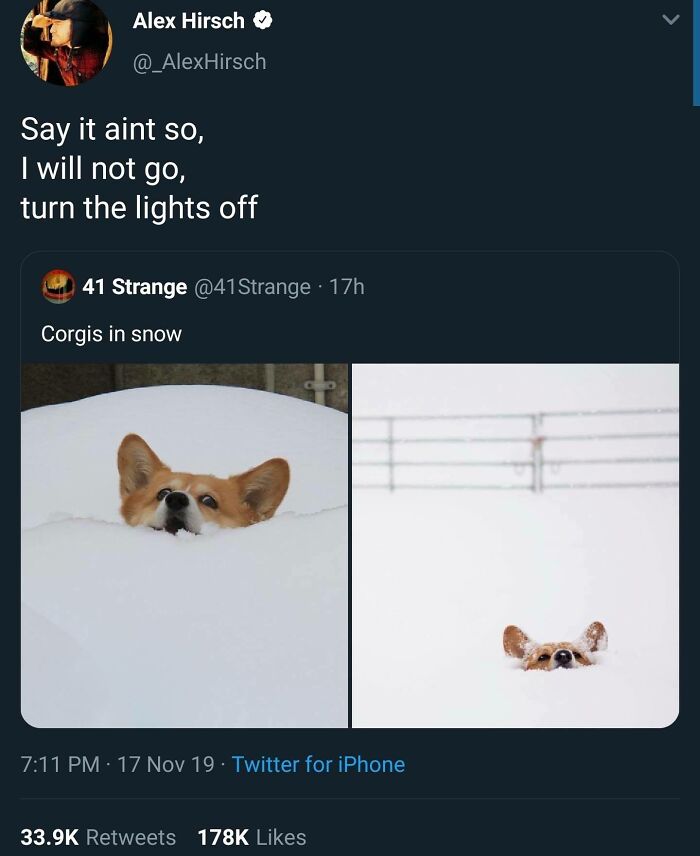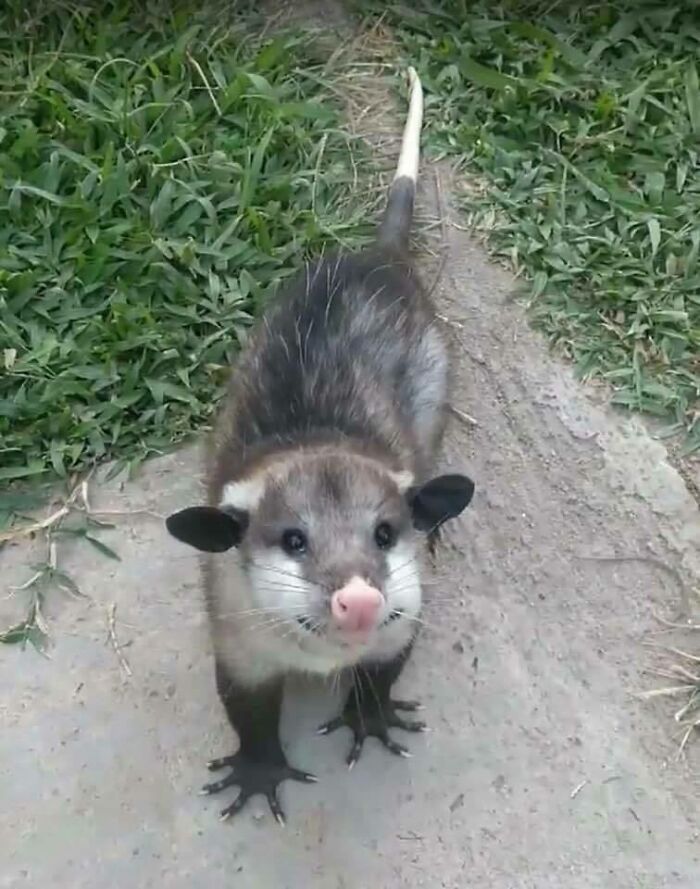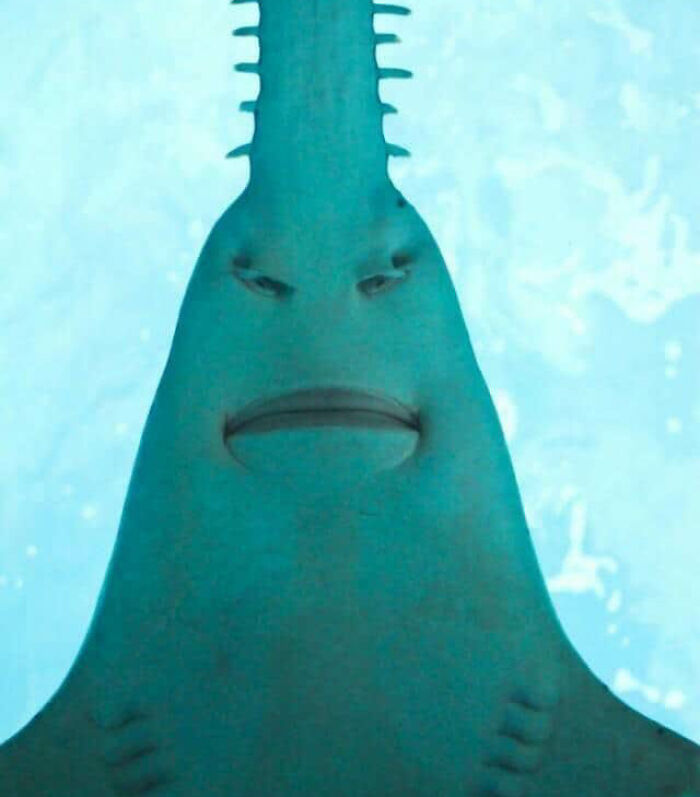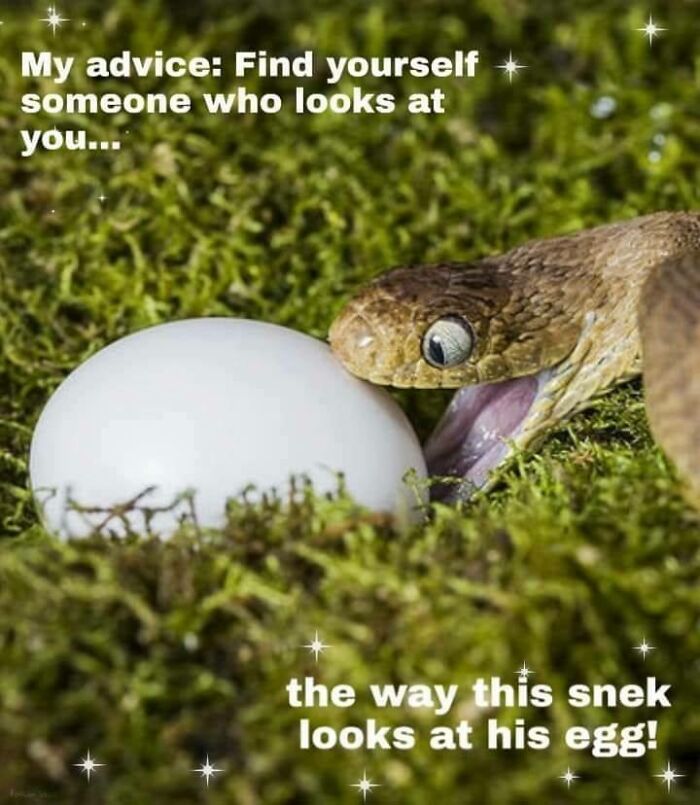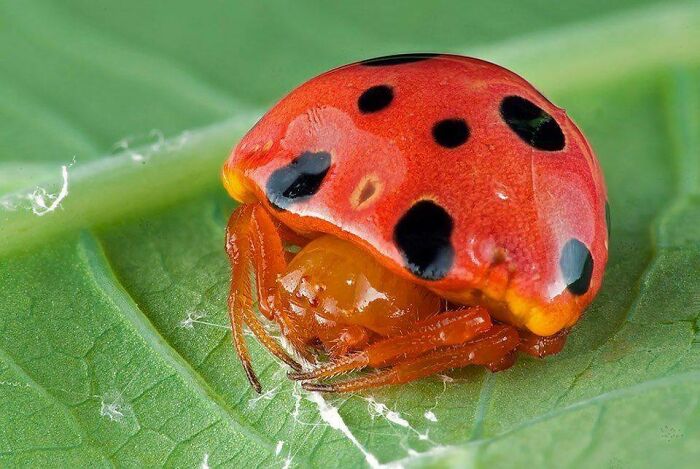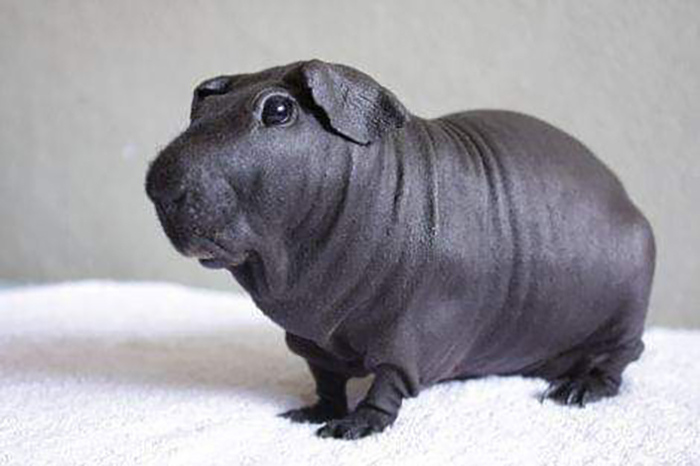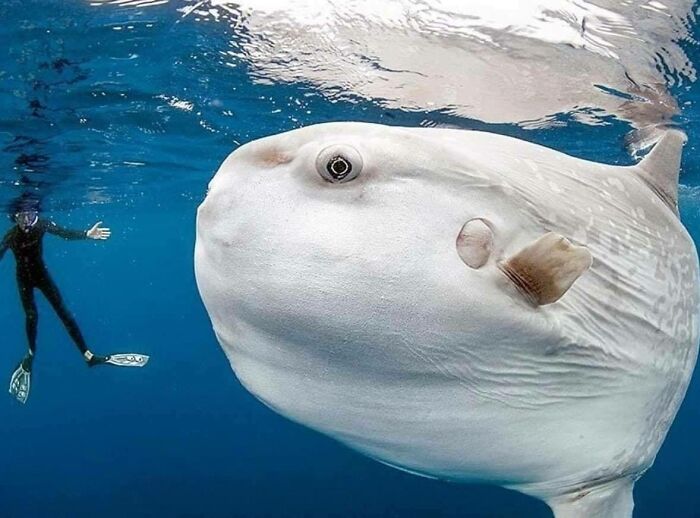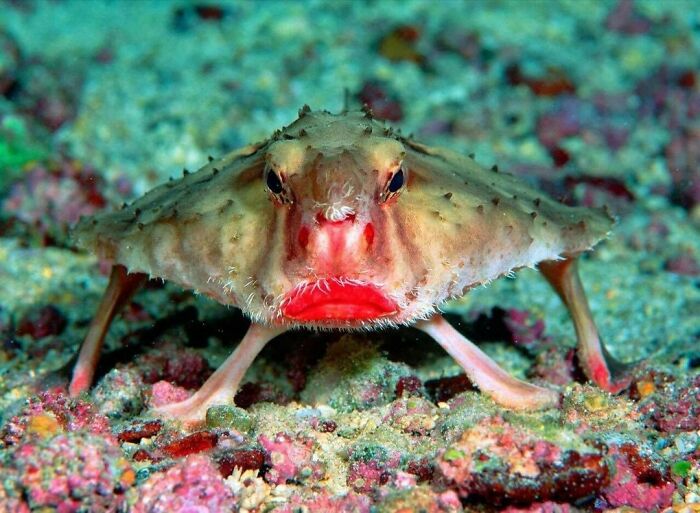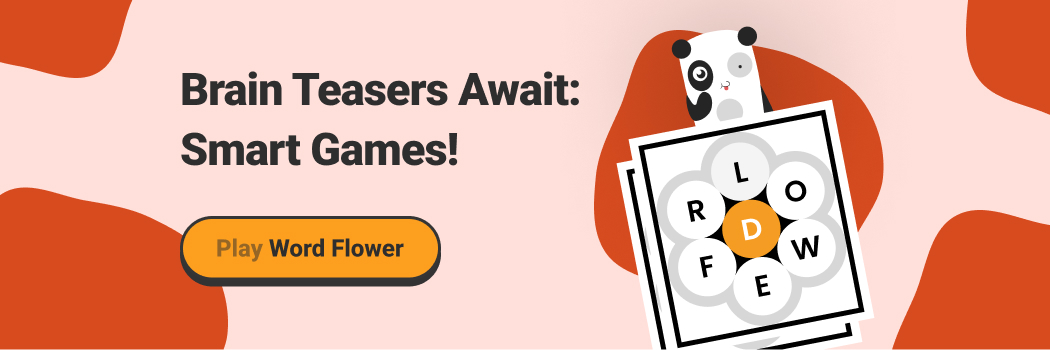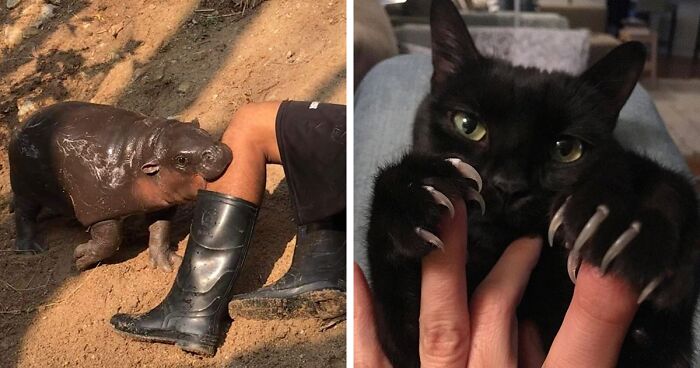
This Facebook Group Celebrates ‘Cute Nopes’ That Might Change Your Mind About Them (50 Pics)
Our world is full of many amazing species; in fact, scientists estimate that there are about 8.7 million animal species living on Earth. But due to the sheer number of animals on the planet, they can’t all be cute and cuddly. We all know how beloved cats and dogs are, but sometimes frogs, owls, hippos, snakes, and insects need a little love too.
To celebrate all of these underrated but still adorable animals, the Cute Nopes Facebook page was born. We’ve gone through all of their posts to find the best pictures that might convince you that your next pet should be a little slimier or scalier than a puppy. Below, you'll also find an interview with Nancy Lawson, author and creator of The Humane Gardener, to hear her thoughts on these misunderstood animals. Be sure to upvote all of the pics that simultaneously make you say “cute!” and “nope!”, and then if you’re interested in another Bored Panda piece featuring some of the sweetest looking snakes on the internet, look no further than right here.
This post may include affiliate links.
The Cute Nopes Facebook page was launched on April 29th, 2016, and has amassed over 168k followers since then. The page describes itself simply stating, “Cute insects/animals/other things that make you say NOPE.” And what more could you ask for? From photos of animals that most of us would be terrified to encounter in the wild but somehow still look cute and cuddly to pics of insects that could be from someone’s nightmares, this page does a wonderful job of making viewers conflicted. Is this photo cute or unsettling? Both, perhaps?
The concept of the page is genius, but it does get me wondering why some animals are considered cute and others are deemed definite “nopes”. According to scientists, certain features in animals that subconsciously remind us of human babies usually make us swoon. We are programmed to want to care for tiny humans , so if a little creature reminds us of them, we may want to cuddle them and feed them a bottle as well.
The fact that we find certain features cute can be utilized by anyone. Even the designers of the Mini Cooper purposefully made its headlights large, round and forward-facing to appeal to people who would find it cute. And it worked; cute is definitely the word I would use to describe those cars. The reason why we love “cute” things is because they provide our brains with feel-good chemicals like dopamine. We may even feel “cuteness aggression”, or the feeling of being overwhelmed with cuteness to the point that you want to squish or squeeze your puppy as hard as you can. (But we know logically that we should not actually do this.)
When it comes to animals, having cute babies might be essential for some of their survival as well. Animals that do not need to be cared for by their parents after birth tend to be less cute, as they can just go straight into the world without needing to be looked after. Some examples are reptiles, most insects and fish. You might find them cute, but they do not have the typically adorable features like large eyes and large heads.
Other animals, who need to be tended to by their parents for some time, are usually more cute so their parents feel the desire to nurture them. Most mammals are born much smaller than they eventually end up with large eyes, rounder noses and a layer of baby fat. It is important that humans, and many other mammals, find their offspring cute at first so they have the patience to take care of them for years to come. If your baby came out looking like a lizard, you might not be as inclined to protect and nurture it for eighteen years.
Some creatures have even taken advantage of their cuteness factor. It is believed that dogs have evolved to be even cuter than they were centuries ago to exploit human preferences. The more adorable a dog is, the better humans will treat it, and big, round, “puppy dog eyes” can even get a dog out of a shelter when the right person comes along feeling sympathetic. After all, would you rather adopt a wild wolf or a Labrador?
To hear from an animal lover who advocates for creatures of all kinds, we reached out to Nancy Lawson, creator of The Humane Gardener and author of the book under the same title. First, we asked Nancy if there are many animals who are misunderstood due to the way they look. "So many animals are misunderstood simply because people are unfamiliar with them, and their lifestyles and behaviors are different from ours," Nancy told Bored Panda. "Snakes are a good example because they move so differently than we do, and they lack facial expressions. They communicate mainly through scent; they can find mates, socialize, express fear and alert others to imminent danger that way. Those things are largely invisible to us, but it doesn't mean that snakes are any less engaged with the world than we are. They have social lives of their own, making friends with other snakes, and they have even been found to take care of each other's young."
"A lot of animals have ways of making themselves look scary so they can deter predators," Nancy explained. "Insects are particularly good at this. One of my favorites is the hickory horned devil caterpillar, the larva of the regal moth (also called the royal walnut moth). At an early stage, the caterpillars are rust-colored and very spiny. Later they become a bright turquoise color with reddish "horns." Though some caterpillars can deliver a sting if you touch them -- a natural defense -- these little guys are just good at bluffing, taking on a flamboyant coloration and shape to freak out birds and other potential predators."
We also asked Nancy if there is any reason to be afraid of most animals. "There are usually many more reasons for animals to be scared of humans," she says. "We are the ultimate predators, with the ability to destroy each other and the rest of life on earth. Behaviors of wildlife species of many kinds and sizes -- coyotes, bears, social wasps like yellow jackets -- are often mistaken for intentional aggression towards humans, but that couldn't be further from the truth. When these animals exhibit such behaviors, they are just trying to defend their nests and protect their young. If someone got too close to our children or started peeking in our windows, we would defend ourselves and our homes too, right?"
Lastly, we wanted Nancy's advice on how we can teach others not to be so scared of harmless creatures. "It starts with breaking down these myths and helping people try to imagine the world from the perspective of other beings. We should always be cautious around unfamiliar animals and species, both for their sake and our own. But there is a difference between being careful and being fearful," Nancy explained.
"If someone finds that they are afraid of a certain type of animal -- whether it's a spider, a snake, a dog, or fox, or hawk, or any of the many other members of the animal kingdom -- I recommend that they learn about the species' natural history. What do they eat? Where do they nest or den? How do they reproduce? What types of social lives do they have? What are some of the interesting talents they possess that are unique to their species or the family of animals they belong to? And then, if possible, take time to watch the animal, even from a distance. Getting to know other creatures isn't that different from getting to know our fellow humans. In time, you start to see that they are really not that different from us, in that we all want food, shelter, comfort, love, and freedom from being attacked."
If you would like to hear more wisdom from Nancy, be sure to check out her book The Humane Gardener: Nurturing a Backyard Habitat for Wildlife (How to Create a Sustainable and Ethical Garden that Promotes Native Wildlife, Plants, and Biodiversity) right here.
Shall we not bother trying to kill each other and just have a day off?
When we determine how we feel about an animal based on how it looks, we tend to forget the classic rule to not judge a book by its cover. The truth is, just because an animal is cute does not mean it is kind, and just because an animal looks frightening does not mean it is out to get us. To convince you not to pass judgment on scaly, sharp or slimy animals, we consulted Treehugger’s list of “Scary Animals That Are (Mostly) Harmless”.
To start off, writer Bryan Nelson shows readers the aye-aye. While its name sounds like something sailors might say to one another, these little “gremlin-looking” creatures with “long, bony, witch-like middle fingers” are extremely peaceful. They tend to be unafraid of humans, so they might come close, but they won’t hurt you. Sadly, due to their odd appearance, they are often killed due to superstitions in Madagascar that they are “harbingers of death”. But if you ever happen to encounter one, remember that there is no need to fear.
The next surprisingly harmless animal is the basking shark. All sharks tend to get a bad reputation for attacking humans, but it is actually very rare for even the most violent shark to come after a person. In fact, in 2021, only 73 people worldwide were bitten by sharks unprovoked, and only 9 of those people died. I’m not saying you should go around looking for sharks, but if they are a fear of yours, keep in mind that it is incredibly rare to encounter a hungry one. If you do come across a shark, you might be lucky to find a basking shark. These interesting creatures have massively large mouths, but they are permanently open. They could not chomp down on you if they wanted to, as they actually just feed through large filters rather than with sharp teeth like most other sharks.
Vampire bats are often demonized as well because of their frightening faces and unsettling name. Their diets are mostly blood, but they are hungry for cattle, goat or bird blood. Humans are in the clear. And these little bloodsuckers are discrete when they feed, as they use their teeth to make tiny incisions in their victims then gently drink for up to half an hour. Often, the animals they feed off of don’t even realize as they peacefully sleep through the entire experience. All bats are capable of carrying diseases like rabies, so you still want to avoid ever touching or getting too close to these creatures, but there is no need to fear their little tiny vampire teeth.
Even tiny household spiders can be enough to send some people running into the next room, so something as large as a giant arachnid, or camel spider, is certain to freak many people out. But they are harmless. And if it makes you feel any better, they are not even spiders or scorpions at all. They belong to their own order: Solifugae. Camel spiders can grow up to 6 inches long and run at speeds of up to 10 miles per hour, but they are not poisonous and don’t attack humans. Even looking at a photo of one makes me know I would run in the opposite direction if I ever met one face to face, but it is reassuring to know that when the little guy inevitably caught up to me running at such high speeds, he would not be viewing me as lunch.
Snakes are another notoriously feared creature, but as Nancy Lawson wrote for the Humane Society, we have no reason to fear them. She explains that many people assume snakes are out to get us because of how dangerous they can be to small prey like mice, but the reality is that they usually just want to be left alone. “They swallow their food whole, and in the United States there are no snakes big enough to eat us,” Melissa Amarello, executive director of Advocates for Snake Preservation, told the Humane Society. “They just don’t want to have anything to do with us.”
Some people even justify torturing snakes because they assume that they deserve it or if we don’t kill them first, they will come after us. Nancy noted the example of a cruel “rattlesnake roundup” in Texas where thousands of snakes were forced out of their dens with gasoline then tormented and killed for entertainment. In reference to the roundup, Amarello said, “If those were rabbits … it would be excruciating to experience because they would be screaming out loud and we could all hear it. We just can’t hear it when snakes are doing it.” Even though they may not be considered cute by many people, snakes still deserve their peace. As David Steen, author of Secrets of Snakes: The Science beyond the Myths says, “They’re just little animals, and they’ve got their own lives going on. They’re fascinating creatures with a lot of mysteries left to reveal.”
We hope you are enjoying this list of debatably adorable creatures that you might be very glad to never encounter in real life. Keep upvoting the pics that make you feel the most conflicted, and then let us know in the comments what your favorite “cute nope” animal is. Remember, we may live in an appearance-obsessed society, but those toxic ideas don’t need to extend all the way to the animal kingdom. After all, I’m sure these animals find themselves absolutely gorgeous (and not terrifying at all).
There is a woman on TikTok who owns a bunch of these as pets, they are much cuter when they are not a baby.
Elysia Chlorotica, a green sea slug, is the first animal ever discovered to create chlorophyll like a plant. This makes it capable of photosynthesis, it is like somewhat part animal and part plant.
No. I am not aware of ANY animal that "creates chlorophyll like plants", so I checked and was proven correct (besides, chlorophyll is just a pigment - for actual photosynthesis you need a whole complex molecular apparatus around it). What these animals *actually* do is store the chloroplasts of the algae they eat to get extra energy from those chloroplasts' photosynthesis. But it is still wholly an animal and unable to create chloroplasts on its own.
Must I remind you again...it's Opossum not Possum. I earned that O with my smile and good looks!
Today I learned that if I scare an adult quokka, I get a free baby quokka for my troubles.
Today I learned that if I scare an adult quokka, I get a free baby quokka for my troubles.

 Dark Mode
Dark Mode  No fees, cancel anytime
No fees, cancel anytime 




